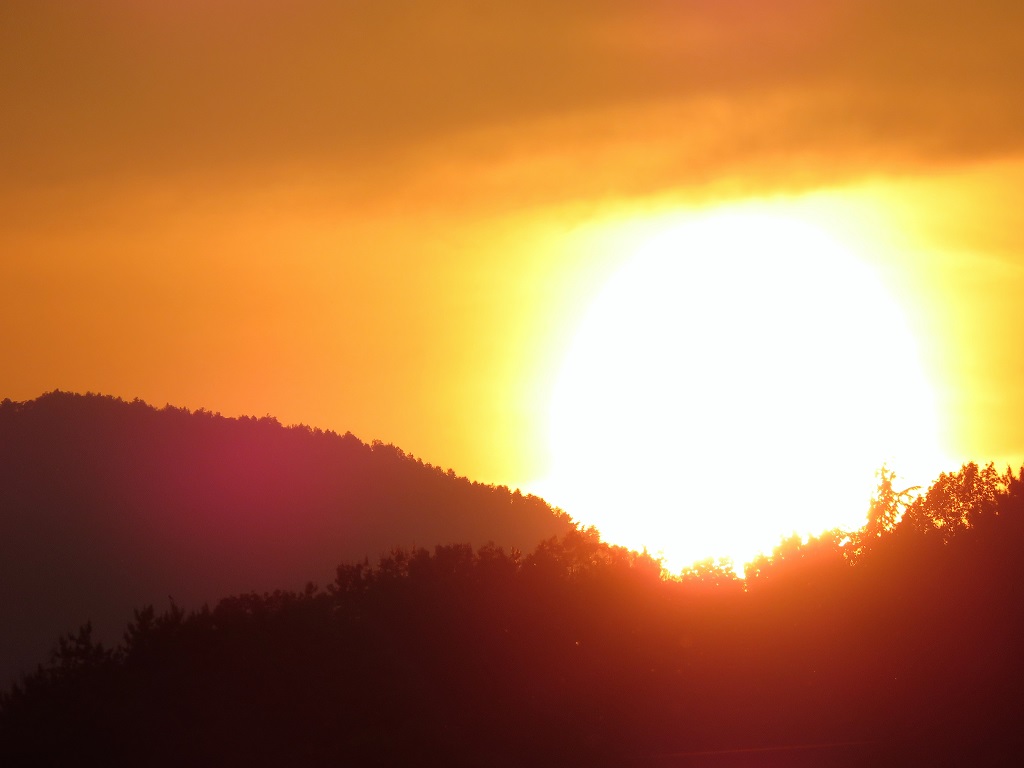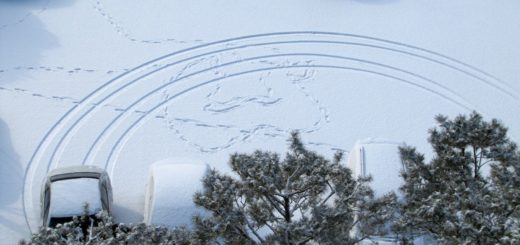Meanwhile, back in the cosmos…
Some weeks ago, a student who knows a great deal about my character and interests contacted me with the urgent advice to run outside as quickly as possible, so as not to miss the gorgeous moonrise she was witnessing from a bus across town. Yesterday, the same young woman contacted me with similar urgency, at roughly the same late afternoon hour, to ask, “Do you like the sun too? It is setting beautifully now!”
I replied, “I like everything that reminds me of eternal things, and makes daily life seem small.”
Last week, during a close study of Plato’s Republic, a keenly inquisitive Korean university junior, whose soul has recently been ignited with political enthusiasm, told me that he dislikes Donald Trump because of the things Trump has said about black people. I asked which “things” he was referring to. Of course, the student — a very bright young man who hopes to pursue graduate studies in philosophy — could not cite any specific examples. He had read about these matters on the internet, and heard them spoken of among his politically-inclined friends. The reports were agreeable to his current political perspective, so he felt no reason to question them.
I gently explained that while he will probably never meet another human being less inclined to defend Trump than I, I would have to see evidence of these supposed anti-black sentiments before putting any credence in such claims, since it is intrinsic to today’s political climate that people who oppose a man ideologically will typically say anything about him that will place him in a bad light, i.e., they will lie without hesitation or remorse in order to appeal to the feelings of the crowd. And that crowd, in turn, will be all too eager to believe stories or interpretations that “feel right” from their adopted perspective. Hence, when we encounter such claims, it is always important, lest we become mere crowd followers ourselves, to wonder what political interests might be furthered by encouraging people to believe, for example, that Trump has “said things” about black people.
My response to this student’s claim was entirely different — diametrically opposed, in fact — to my natural response to the very same claim when it issues from hardened progressive ideologues. For the latter are cynical and disingenuous, which is to say they are lying and they know it. People like my student, on the other hand — intelligent young people in their first flush of sincere political excitement — are merely letting their interest in half-digested ideas run up ahead of their capacity for contextual judgment, i.e., their ability to apply an adopted set of principles to specific cases.
I recall my own first days of political enthusiasm, in which the forcefulness of Ayn Rand’s polemical style, combined with my general paltry awareness of serious political philosophy, led me to believe I was encountering the heights of certainty and rationality in virtually every rabid declaration made by Rand herself, or even by those who claimed to be aligned with her “objectivist” views. It took time, experience, and many sharp theoretical objects poked into my enthusiastic bubble, to fully awaken me from my dogmatic slumbers.
Such is the character of intellectual seriousness in the heart of one with insufficient learning. It is therefore the essential nature and purpose of teaching to provide those sharp theoretical objects — to deflate youthful illusions of wisdom, but to do so without simultaneously diminishing the enthusiasm for the search. In other words, the trick is to undermine unreasoned beliefs without destroying the desire for truth itself, usually by fostering an awareness of, and interest in, alternative paths, paths promising even greater delights than the student’s initial attractions to the intellectual realm.
And so my bright student, his soul swayed not by the raging proto-libertarian vitriol that was my gateway to political thought, but rather by the “forward-looking” tones of doctrinaire progressivism, has spent the past few months studying the foundations of political philosophy with me, including, these days, The Republic.
Such an opening of the excited mind to wider horizons of thought and living is essentially what the university is for, though its current proprietors, throughout our ever-shrinking modern world, have collectively taken quite the opposite view of the matter.
Today, with thousands of years of recorded human history accessible to us, we simply take for granted the remarkable fact of knowing the identities, words, and even life choices of actual, particular men who lived on this Earth more than two millennia before our birth. For example, we know there was a man named Socrates, who lived in Athens and was executed for impiety and corruption of youth in 399 B.C. But even more bracingly, in a way, we may also discover, with minimal investigation, that this famous man Socrates had many otherwise non-famous friends and students, men with names like Crito, Apollodorus, Aristodemus, Phaedo, and Simmias. We know them, and not merely their names; we have had their minds and words reported to us, we know something of their individual characters and predilections — at least as much, I daresay, as we know of the souls and tendencies of most of the flesh-and-blood humans we meet in our daily lives.
Our very ability to know such details from the remote past (even apart from the details themselves) ought to stir our imaginations and fill us with wonder. Instead, due in part to our progressive educational norms, this miracle has come to seem the most banal and obvious triviality in the world, and no more extraordinary to us than knowing our own parents’ birthdays — which is why we increasingly think nothing of losing those distant men in their specificity, and so unthinkingly reduce these preserved treasures of ancient spiritual vitality to nothing but generic textbook summaries about “what men believed back in those days.”
It is most instructive to compare our own dismissiveness about the vast recorded antiquity actually available to us, to the perspective of those ancient men whose unique lives we carelessly dissolve into sand, and to observe their response to the relatively limited historical framework accessible to them. For today, we measure what we call “the universe” in billions of years, and calculate known human existence in tens of thousands of years, whereas Socrates and his companions had written records of only a few centuries, and few other tools for measuring the world beyond the range of their own bodily senses. And yet today we live and think as though our material blink of an eye on this planet exhausts the entire breadth of our individual interest in the cosmos, whereas Socrates and his friends conjectured, almost matter-of-factly, about ten-thousand-year cycles of personal spiritual development.
We moderns imagine we are on the verge of seeing everything at last, and yet we live our own real lives in accordance with a vision extending no more than a few years. The ancients, by contrast, saw almost none of our “known world,” but lived their lives in a manner that encompassed pasts and futures far outreaching any tangible time they had much evidence for, and stretching beyond all conceivable spatial limits, into the theoretical infinite.
Hence their love of symbols, and of all evidence of repetition — resonances — and their attraction to every tantalizing mystery of existence, including of their own personal existence. Meanwhile, we very late moderns feel an overwhelming desire only for comforting evidence of our smallness, because the certainty of smallness (that is what materialism means) allows us to carry on blithely with our empty pleasures without fear that we might be missing something.
The psychological risk of ancient man was always hubris — that is, feeling strong enough to burst the barriers of heaven and challenge the very gods. Our great psychological problem is what we, with apt triviality, call “lack of self-esteem” — that is, feeling too insignificant and puny even to get out of bed in the morning, to steal oxygen from the animals, to be worthy of our meaningless handful of years on this Earth.



